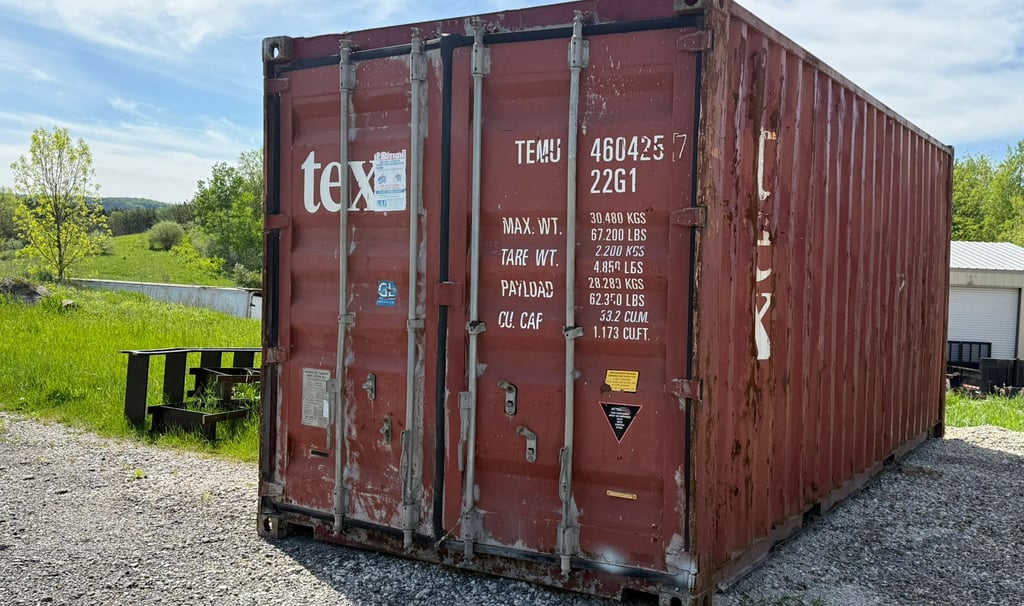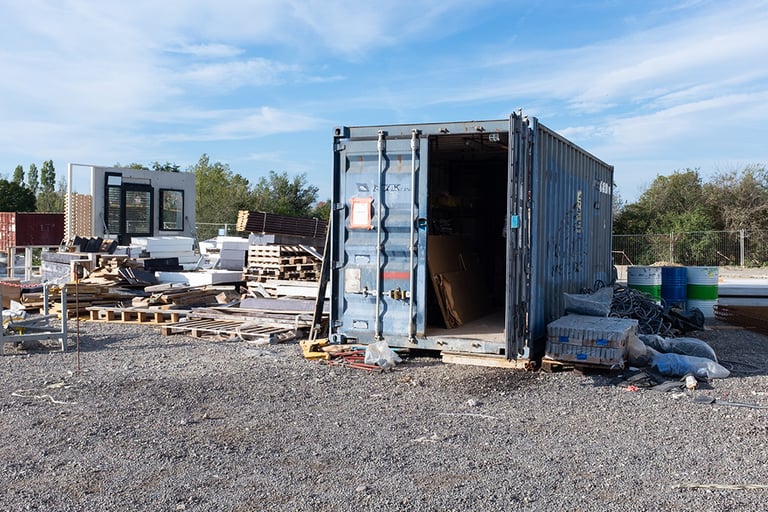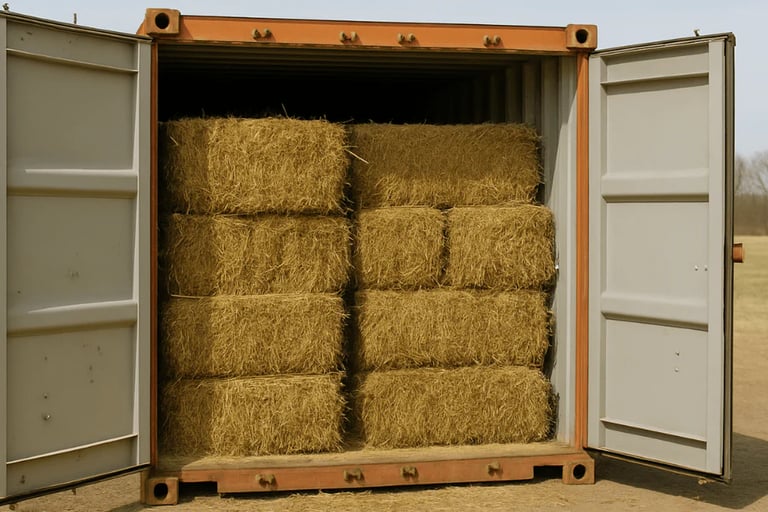SPRING PREP SALE! DEALS ON PURCHASES OF MULTIPLE UNITS! - Call us NOW for a free quote 1-844-331-8368
Top 5 Ways Ontario Businesses Use Shipping Containers for Storage
TDOT team
9/15/20252 min read


Across Ontario, many businesses in construction, agriculture, and events rely on shipping containers for secure, flexible, and cost-effective storage. Built tough, lockable, and easily movable, containers are a practical solution for countless industries.
Here are the top five ways Ontario businesses use shipping containers—supported by Canadian government and municipal sources to ensure credibility.
1. Construction Site Storage 🏗️
Ontario construction firms frequently use shipping containers to safeguard tools, materials, and equipment at job sites. These steel units are lockable, weather-resistant, and relocate easily as projects move.
Source: City of Hamilton confirms shipping containers are subject to the Ontario Building Code as recognized storage structures.
👉 Hamilton.ca – Ontario Building Code & Containers
2. Agricultural & On-Farm Storage 🌾
On farms, shipping containers are used for feed, produce, or equipment. They’re rodent-resistant, durable, and protect contents from Ontario’s variable weather.
Source: Ontario government’s farm storage guidelines highlight proper facilities for agricultural storage.
👉 Ontario.ca – Farm Storage Facility Guidance
3. Environmental & Hazardous Material Storage
When businesses need to store chemicals or hazardous waste, adapted containers can provide safe, compliant storage.
Source: Ontario Ministry of Environment guidelines outline proper containment for chemical and waste storage facilities.
👉 Ontario.ca – Environmental Protection for Storage
4. Event & Temporary Workspace Storage 🎪
Festivals, fairs, and temporary community events use shipping containers as on-site storage or even pop-up office space. Municipalities often recognize containers as temporary structures, making them practical for short-term use.
Source: BizPaL, Canada’s online business permit service, supports municipalities in planning storage and temporary structure permits.
👉 BizPaL – Business Permits and Licences
5. Zoning & Permit Compliance
In Ontario, containers over 10 m² (108 ft²) are classified as “structures” under the Ontario Building Code and may require a building permit. Municipal governments, like Hamilton, provide clarity on placement rules to help businesses stay compliant.
Source: City of Hamilton statement on shipping containers and zoning bylaws.
👉 Hamilton.ca – Shipping Containers & Building Code
Why Containers Work for Ontario Businesses
Durability: Corten steel construction resists Canadian weather.
Security: Lockable design prevents theft and rodent access.
Compliance: Temporary structures often need simpler permits.
Customizable: Can be modified with shelving, insulation, or office-style features.
Real-World Examples
Contractors keeping tools safe across rotating job sites.
Farmers storing feed and machinery securely on-site.
Event organizers using containers for staging equipment and supplies.
Looking for reliable, secure, and affordable storage solutions in Ontario? TDot Containers delivers new and used shipping containers province-wide for construction, farms, and events.
👉 Browse our full inventory or request a quote today—we’ll help you choose the right size and delivery option.
References






Get in touch
Contacts
1-844-331-8368
tdotcontainers@gmail.com
